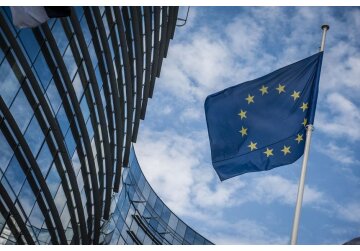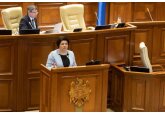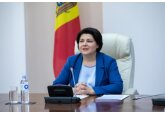
The European Union strengthens Moldova's energy security and helps it overcome the energy crisis.
This was announced by the EU Permanent Delegation to our country, noting that the challenges caused by the Russian invasion of Ukraine showed how important solidarity is, and the energy crisis was no exception. Thanks to the EU and its member states, it was warm in the houses of Moldovan citizens in winter. The European Union and its states provided the country with budgetary support of 150 million euros to overcome the energy crisis. EUR 300 million was allocated by the European Investment Bank for the purchase of a strategic natural gas reserve. More than 600,000 consumers in the country receive compensation for energy bills, thanks to financial assistance provided to Moldova by the European Union. The Iasi-Ungheni gas pipeline, which serves as an alternative source of energy supply, was first used in December last year. The EU Permanent Delegation to our country recalled that Moldova received budgetary support in the amount of more than 150 million euros to manage the energy crisis and provide assistance to vulnerable groups. During her visit to Chisinau, Ursula von der Leyen announced the provision of additional assistance to Moldova in the amount of 250 million euros, which will strengthen the country's energy security. Of this amount, 100 million are grants, another 100 million will be allocated in the form of loans, and 50 million are budgetary support. As emphasized by the EU Permanent Delegation to the Republic of Moldova, Moldova is joining the EU strategy to strengthen the country's energy security. Over the past year alone, more than 75 million euros have been invested in energy efficiency initiatives, renewable energy projects have also been financed, schools have been modernized, and projects have been launched to equip residential buildings and public institutions with modern energy supply equipment. The EU and its Member States financed the renovation of 8 schools in Chisinau, Straseni, Soldanesti, Basarabeasca, Leovo, Ungheni, Singerei and Balti. More than 5,000 children and adults can currently study and work in modern and energy efficient educational institutions. The project with a budget of 12.7 million euros was implemented by GIZ in 2018-2021. In addition, 5 residential buildings in the country will be equipped with efficient heating systems by the end of 2023, and solar panels will be installed in 3 hospitals. Horizontal coolant distribution systems are much more efficient than vertical ones, they allow to install individual heat and hot water meters in each apartment, so residents have the opportunity to adjust the temperature in the apartment at their own discretion, and, consequently, the amount of future “payments”. The work is carried out within the framework of the program "Overcoming the Consequences of the Energy Crisis in Moldova", funded by the European Union and implemented by the Moldovan office of the UNDP. The goal of the program is to mitigate the impact of the energy crisis, given that in Moldova more than 60% of the population spends more than 10% of their income on energy. Along with this, more than 200 operators of solid biofuel heating plants, installed in schools, kindergartens at the expense of the EU, have been trained and are able to properly operate this equipment. In addition, 100 district heating plants installed in public institutions have been tested and prepared for winter operation under the EU-funded and UNDP-implemented program “Coping with the Energy Crisis in Moldova”. The EU Permanent Delegation to the Republic of Moldova drew attention to the fact that the Iasi-Ungheni gas pipeline serves as a reliable source of gas supply diversification and, thus, reduces the monopoly on the supply of natural gas to Moldova. Last December, the Iasi-Ungheni-Chisinau gas pipeline was used for the first time to supply gas stored by Moldova in gas storage facilities in Romania. In 2022, the European Bank for Reconstruction and Development provided a loan of 300 million euros to Moldova so that it can strengthen its energy security by purchasing strategic reserves of natural gas. // 06.02.2023 — InfoMarket







